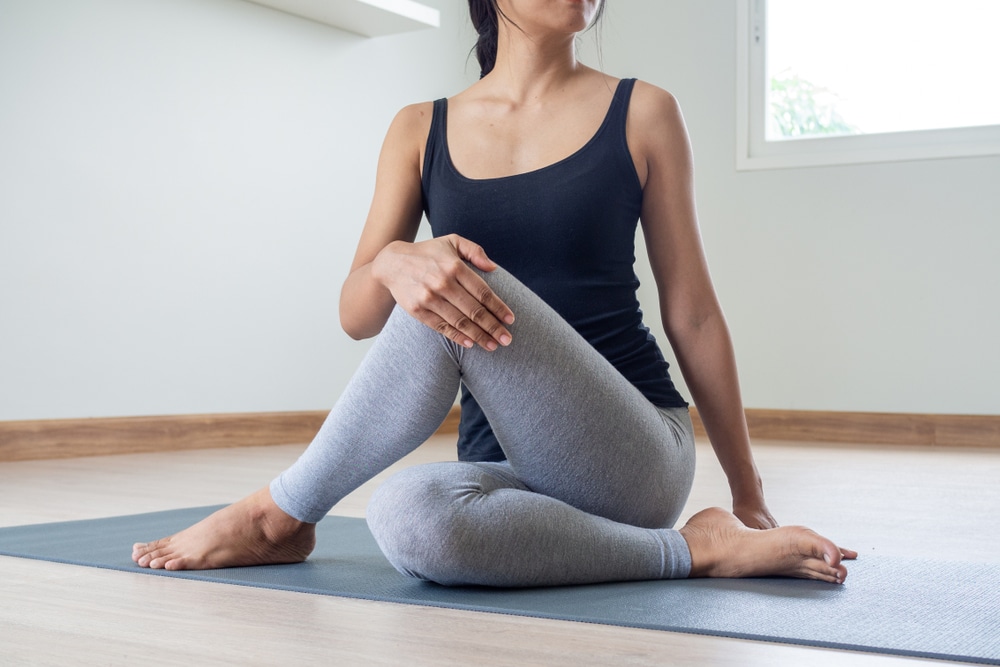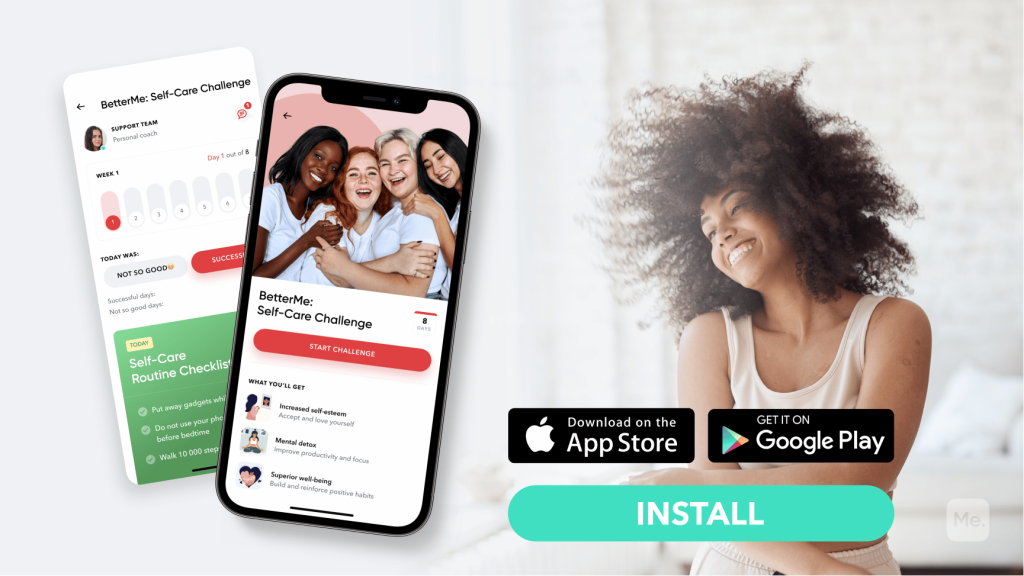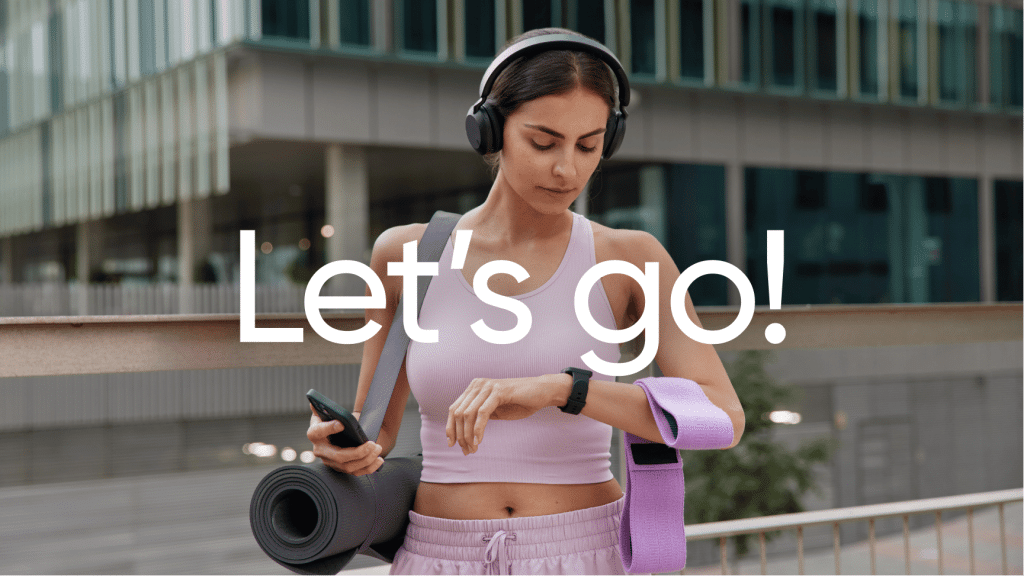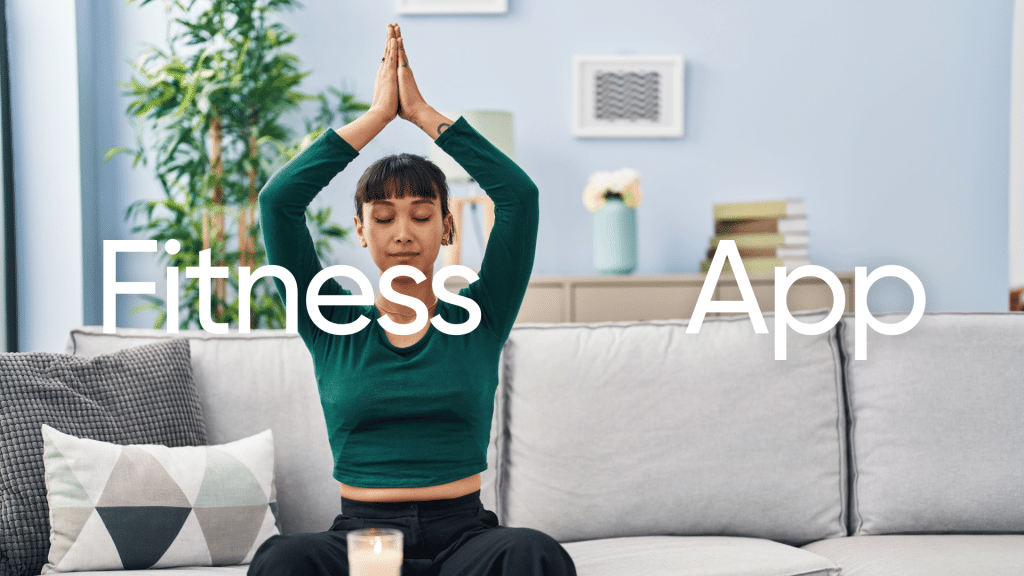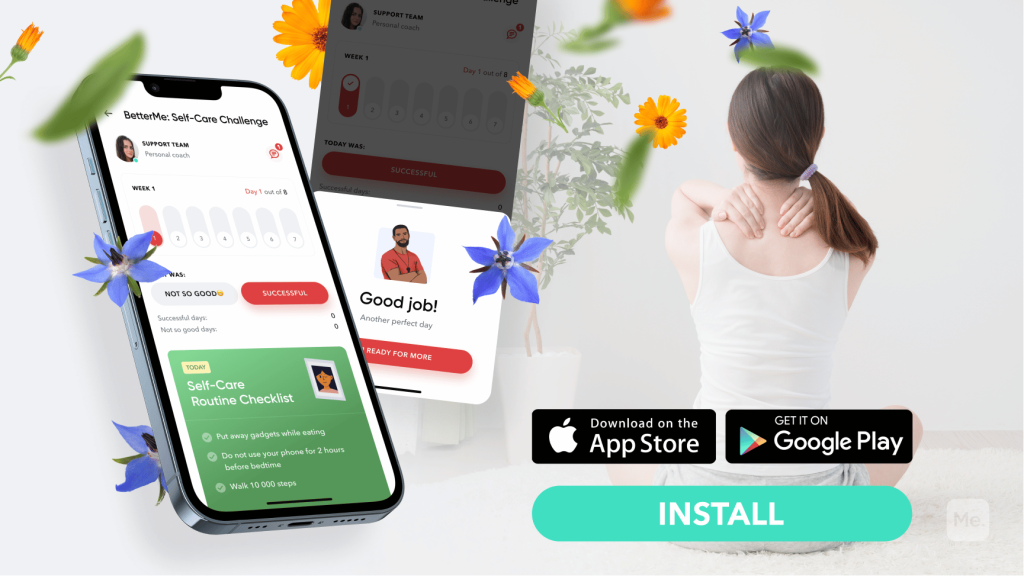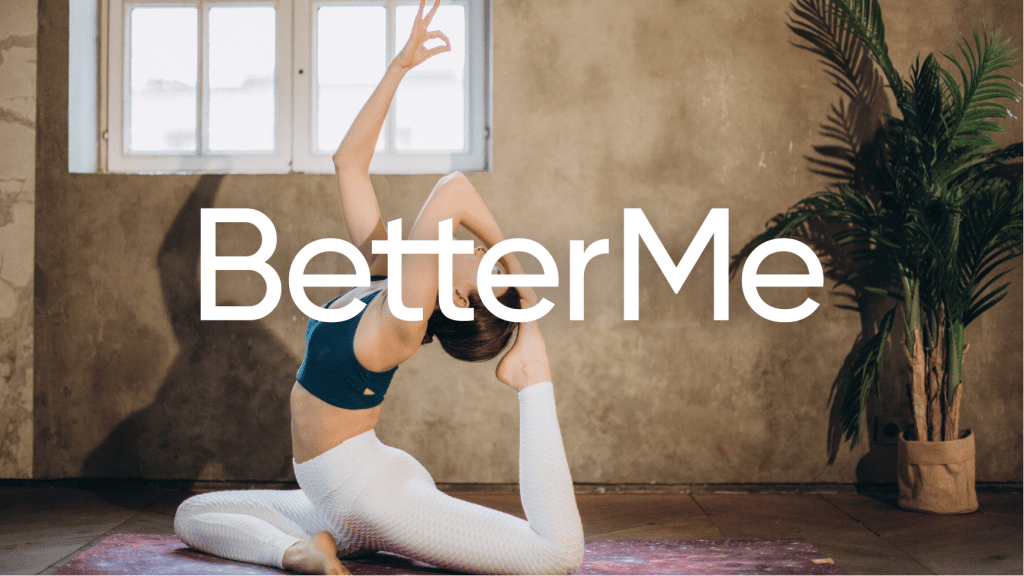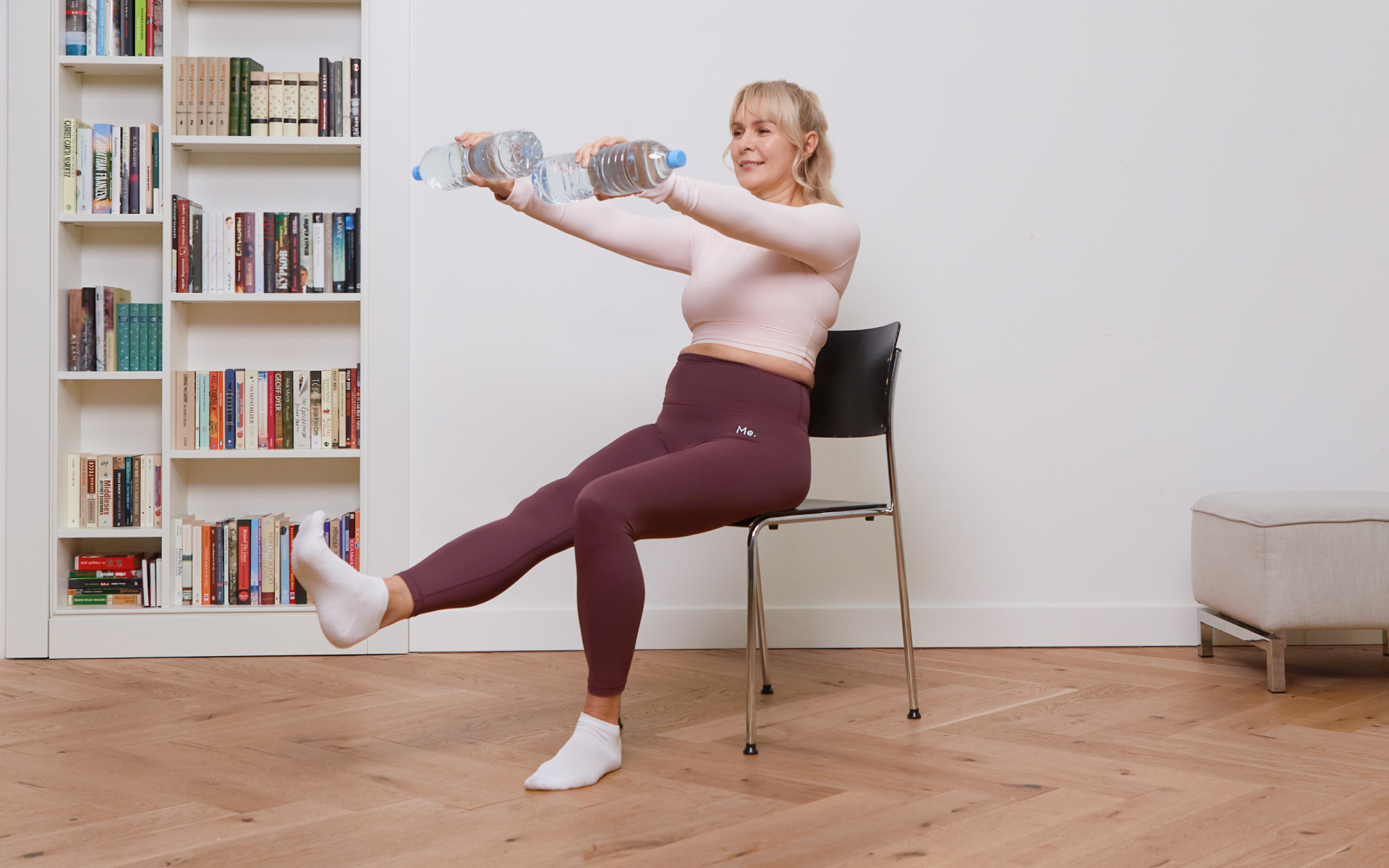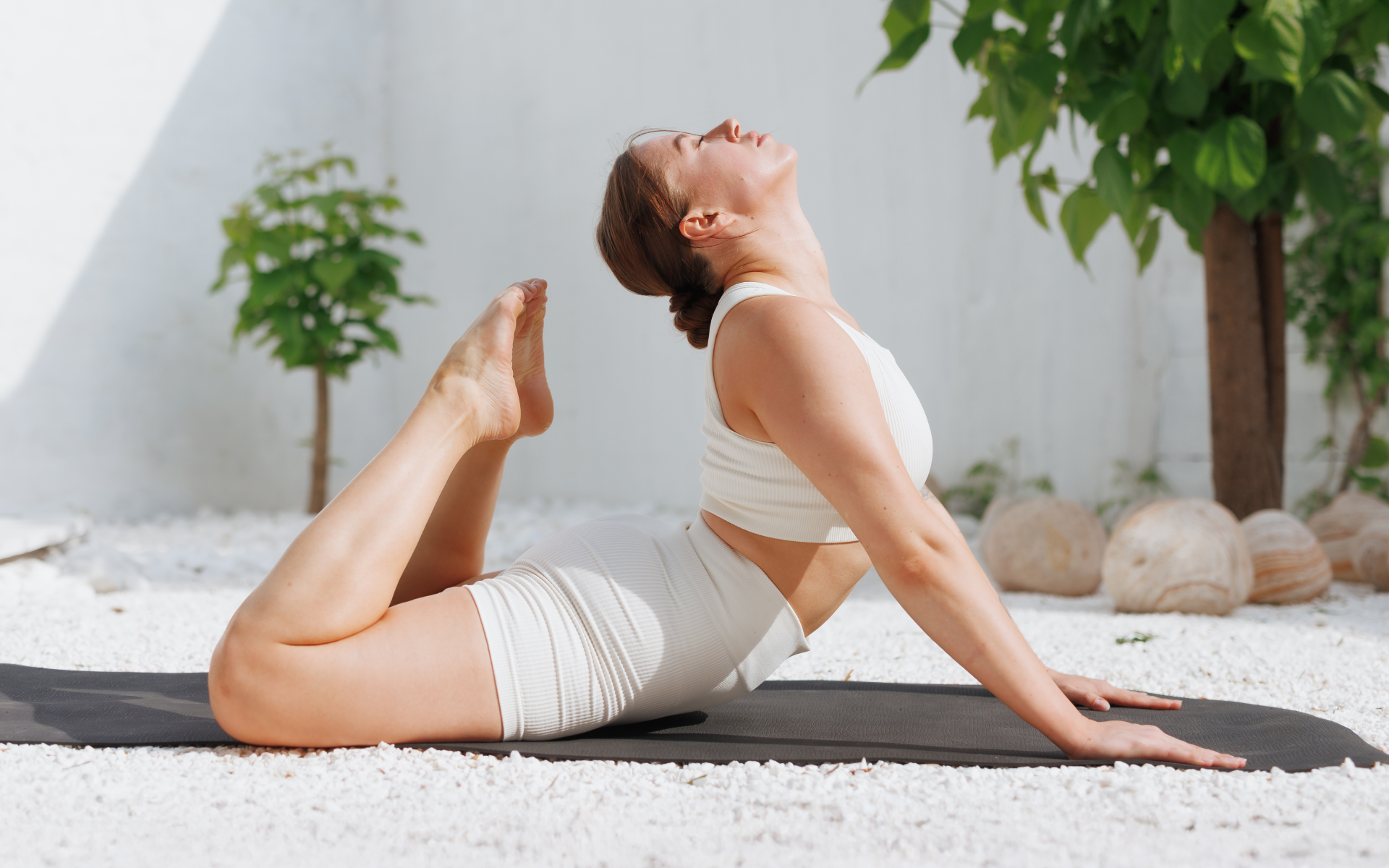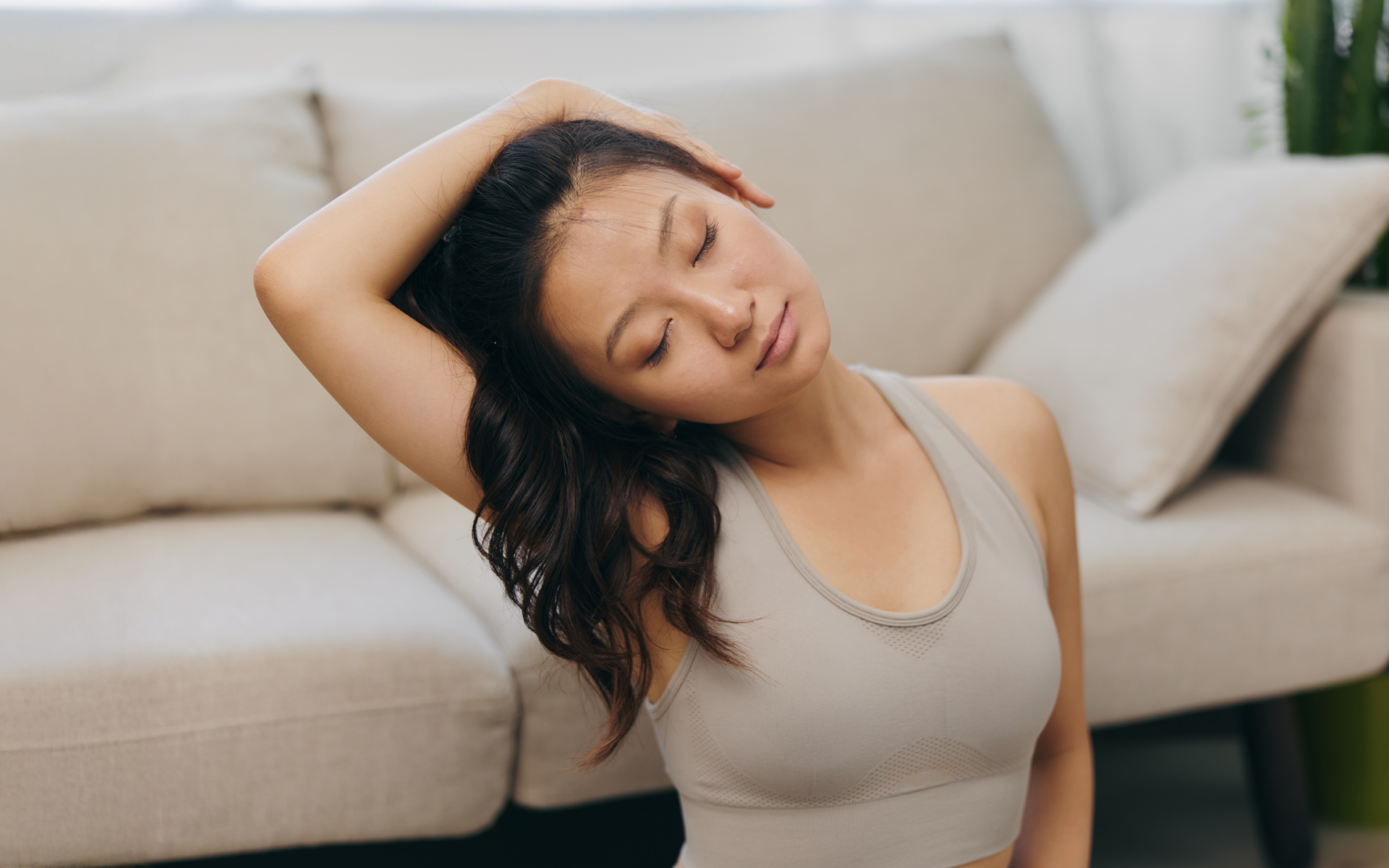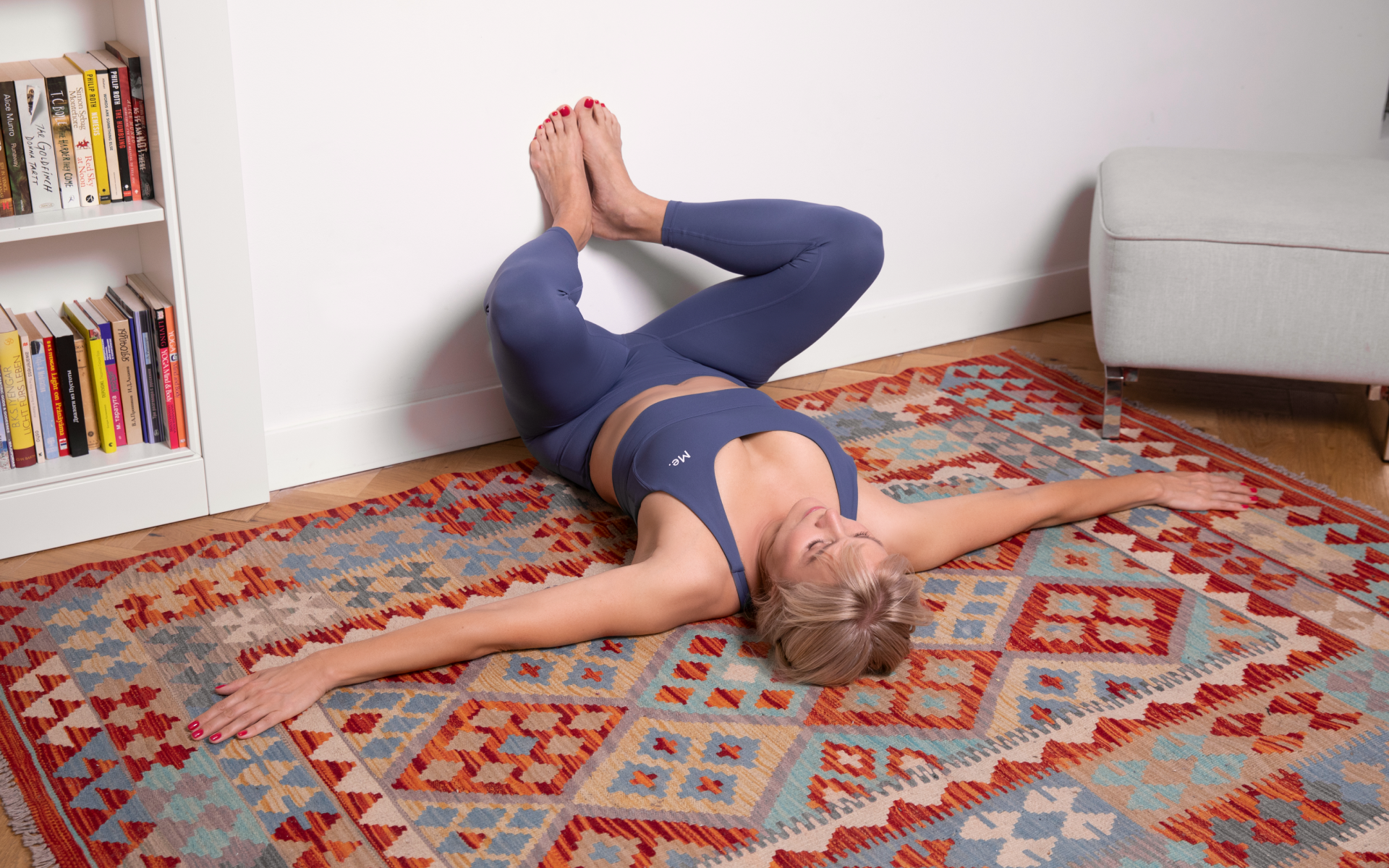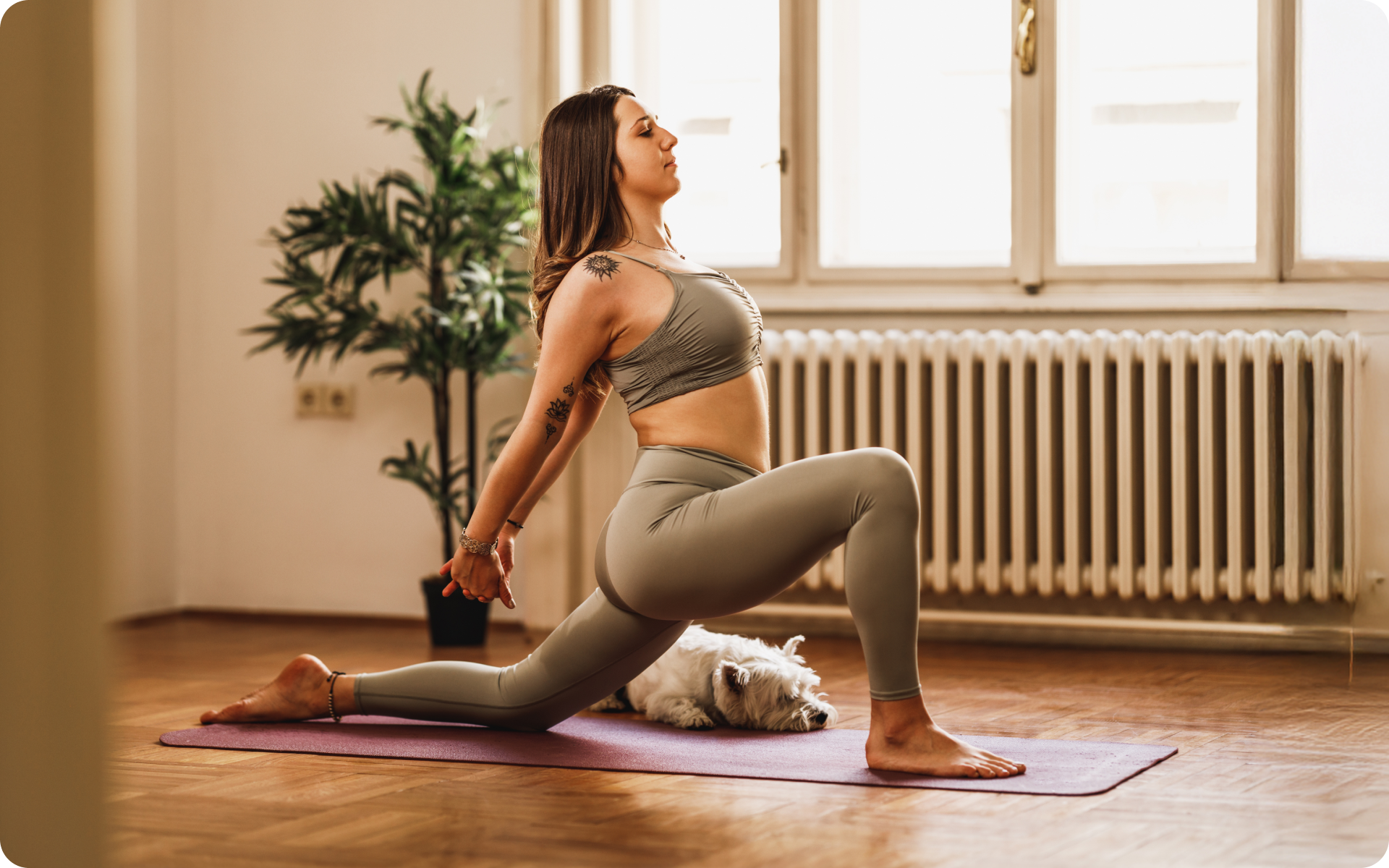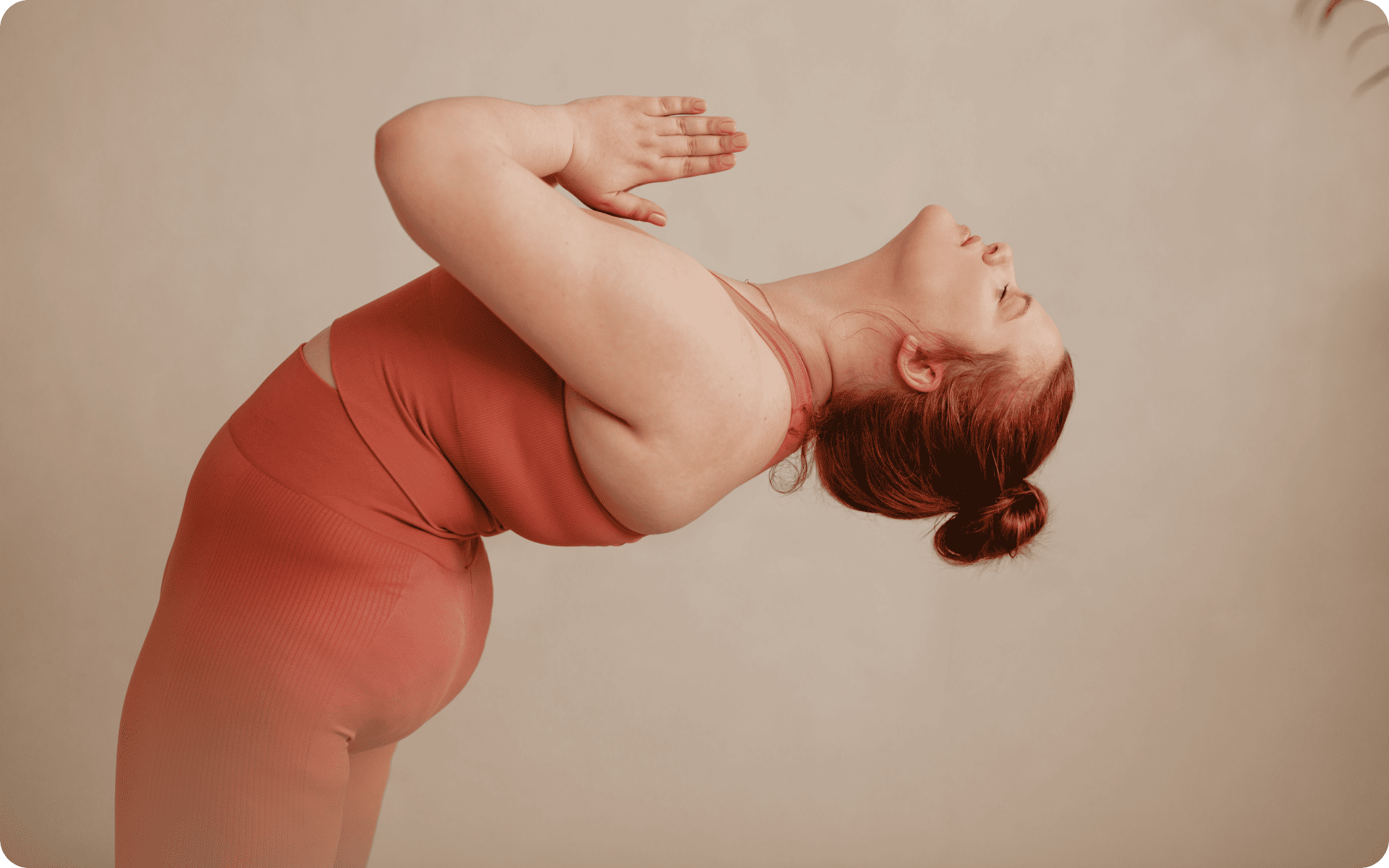If you are new to yoga, this practice can be very intimidating, especially if you regularly see people do complicated poses on your social media feeds. However, these fancy poses aren’t all that there is to this practice. As a beginner, seated yoga poses are a great way to start. Not only are they easy to do, but they are also safer – and you don’t have to worry about face planting and embarrassing yourself. If you are curious about how to do yoga while seated, then you are in the right place. In this article, we shall be introducing you to some easy seated yoga poses, informing you about the benefits of seated poses in yoga, and much more.
What Is Seated Yoga?
Also known as sitting yoga, this is an umbrella term that covers a large number of yoga asanas that start with an individual sitting down. These asanas can be done while simply seated straight, with your legs crossed, folded forward, while twisting your torso around, etc. the variations are endless.
What Are The Benefits Of Seated Poses In Yoga?
Here are some reasons why you should consider adding sitting yoga to your weekly routine
-
Improved Flexibility
Flexibility is the ability of a joint or multiple joints to move through an unrestricted, pain free range of motion. Because basic yoga poses are essentially a form of stretching, our bodies become more limber and flexible over time.
In a 10 week study done on male college athletes, researchers found that doing bi-weekly yoga sessions helped the study participants become more flexible. The athletes were able to do exercises like lunges and leg extensions better as their knees had better range of motion. Researchers also noticed significant improvements in the flexibility/ranges of movement in the athletes hip, ankle and shoulder joints (2).
An earlier study published in 2014, 9 healthy women were asked to take yoga twice a week for 5 months with the aim of increasing joint mobility as well as stretching shortened skeletal muscles. After the 5 months, results showed that the women had increased mobility in their shoulder, hip, and ankle joints. There was also significant improvement in their spine flexion and rotation as well as significant improvement in the flexibility in their chest muscles (the pectoralis major), quad muscles (the rectus femoris), as well as the knees themselves (4).
Read More: Unwind With These Relaxing Yoga Poses While Lying On Your Back
-
Improves Functional Fitness
Functional fitness relates to exercises that prepare your body for real life daily activities like reaching up for stuff in cupboards, bending over, twisting, pulling, pushing, etc. Functional fitness training helps your muscles and joints work together seamlessly and has been shown to help relieve muscle and joint pain (1).
A study published in The Journals of Gerontology in 2016 revealed that not only is doing yoga just as good and effective for your functional fitness as doing any kind of stretching-strengthening exercises, but it is also more accessible to the public as well as older adults, since it requires minimal equipment and is adaptable to anyone including the elderly and those with disabilities (6).
-
Improves Balance
This is especially important for older adults who fall often and thus have a higher risk of fractures. A study review of six studies involving over 300 participants showed that doing yoga-based exercises helped improve balance in older adults – 60 years and above (7). Remember that better balance in older adults also increases their independence which gives them a sense of purpose as well as higher levels of happiness and satisfaction.
It should be noted that better balance isn’t just good for older adults. Younger people, especially those who like being active can also benefit from it. Better balance can help reduce the risk of injury to your joints during exercise and improves neuromuscular coordination – connection and communication between the brain and the muscles (5, 3).
-
Beginner Friendly
Unlike the standing poses that we often see or think about when yoga is talked about, seated poses in yoga are very beginner friendly and easy to do. Because you are closer to the ground, you have more stability in your poses which reduces the risk of falling and injury.
Simple Seated Yoga Poses For Beginners
Before getting into these seated yoga poses, here are somethings to note:
- Sit on a yoga or gym mat instead of directly on the ground. This provides better comfort and stability
- If you still feel uncomfortable on the mat, place a folded blanket, bolster, or block under your bum for extra comfort and better spine alignment
- Some seated yoga poses require you to bend forward and stretch. If you find it hard to do this, and you are not seated on anything raised (i.e. folded blanket, bolster, or foam yoga block), try sitting on something. Elevating your hips will help you get into these poses more easily.
- While yoga is generally a no-equipment exercise, beginners often need extra help to stretch properly. Investing in a yoga strap can help with stretching, flexibility and reducing tension in the muscles/joints. If you don’t want to spend some extra coin to get the strap, improvise by using either a necktie, scarf, a robe tie, or a towel.
If you wish to cinch your waist, tone up your bat wings, blast away the muffin top – our fitness app was created to cater to all your needs! BetterMe won’t give excess weight a chance!
Easy Seated Yoga Poses For Beginners
Here are six easy seated yoga poses that you can try right now:
Easy Pose
This pose is said to help stretch your spine.
- Sit cross-legged on your mat on the floor.
- Straighten your spine and gaze forward. Pick a point on the wall/in the distance and stare at it. Brace your core muscles and use them to keep your spine straight and tall.
- Rest your hands on your lap or on top of your knees.
If this feels uncomfortable, raise your hips by sitting on a towel or blanket. You can also place blankets or towels under your knees for extra support.
Easy Pose Neck Stretch
As the name suggests, this pose helps stretch your neck and well as your spine.
- Get into easy pose as described above.
- From here you can stretch your neck in different ways.
- Gently tilt your head to the right and start rolling it back. Keep rolling your head to the left and then down. Bring your head up to the starting position and repeat in the opposite direction.
- Bring your hands behind your neck and gently pull your head forward to give your neck a nice stretch. Come back to start, and allow your head to drop back, cradling your head in your hands.
- On an exhale, gently drop your right ear toward your right shoulder. Hold this position then on an inhale bring your head back to the center. Hold here then on another exhale drop your left ear toward your left shoulder. Hold this position then on an inhale bring your head back to the center.
Staff Pose
Described as the seated equivalent of mountain pose, improves posture and also stretches your hamstrings and calves.
- From the easy pose, stretch your legs out in front of you. Remember not to round your spine. Keep it straight.
- Ensure that you are seated firmly on the ground. Engage your thigh muscles and flex both feet. Be sure to keep your heels on the ground – lift your knees slightly off the ground if need be to ensure that the heels are on the ground.
- Brace your core by pulling your navel to your spine and relax your shoulders by dropping them from your ears.
- Hold your arms straight and palms flat on the floor on either side of your hips to support your spine. Arm lengths are usually not the same length so shuffle around to ensure that both palms touch the floor.
- Inhale deeply to lengthen your spine. Hold this breath for a while before exhaling and dropping down.
Paschimottanasana aka Seated Forward Fold/Bend
This pose helps stretch both your glutes, hamstrings, calves, and spine.
Here’s how to do yoga seated forward fold pose:
- As you come down from staff pose, lift your hands towards the sky/ceiling.
- On an inhale, draw your spine long. Exhale and bend forward folding over your legs. Ensure that on each inhale, you are lengthening your spine and on each exhale deepen into your bend. Doing this allows you to come down as far as possible
- Fold until your belly touches your thighs and your hands reach your feet without rounding the spine.
- If you cannot reach your feet, try to reach your shins or ankles – again with your back stretched and not rounded.
- Hold this position for a couple of breaths.
Read More: 10 Different Yoga Poses to Relieve Upper Back Pain
Upavistha Konasana aka Seated Wide Legged Straddle
The seated wide legged straddle helps stretch the spine, hamstrings, calves and inner thighs.
- While seated upright with your legs stretched out in front of you, spread your legs to create a V shape. Spread them until you feel a stretch in your inner thighs.
- Lift your arms and on an exhale bend forward bringing your torso toward the floor while keeping your spine straight.
- Lengthen your spine on your inhalations and deepen the posture on your exhalations. Remember to keep your feet flexed and toes active.
- Once you have come into your fullest anterior rotation of your pelvis, stop, release your arms to the floor, and take several deep breaths. If you want to round your spine, this is the time.
- On an inhalation of breath, return to an upright seat. You may deepen your experience of the pose by repeating the posture three times.
Half Lotus Pose
Like all other poses listed here, the half lotus pose helps stretch the spine and improve your posture. It also stretches the muscles around the hips, pelvis, legs, and ankles.
- Sit on the floor with your legs extended in front of you.
- Lift your right thigh and slide your left foot under your right thigh.
- Using your hands, place your right foot as close to your hip as possible on top of your left thigh.
- Keep your back straight and look forward.
- Rest your hands on top of your knees.
BetterMe is your fast-track ticket to a long-lasting weight loss! Tailor your fitness journey and maximize your results with just a couple of swipes!
FAQs
Is There A Specific Seated Yoga Poses Sequence?
Not necessarily. Yoga sequences refer to the order in which yoga poses should be done. Sequencing is said to help a class flow seamlessly. Some practitioners believe that doing this also helps safety and helps people meditate better.
In some cases, a teacher leading a class will set his/her own sequence, but in other cases, some types of yoga like Bikram and Ashtanga have set sequences that do not change. If you are doing any of the above poses at home, you do not need to follow a specific sequence. Just do what feels easy and natural for you. Just aim to start with easier poses and work your way to more complicated ones.
What Is The Seated Pose In Yoga?
There is no one specific seated yoga pose. As described above, seated yoga is basically an umbrella term for any yoga pose that starts in a seated position.
What Are Some Advanced Seated Yoga Poses?
While seated yoga poses are mostly for beginners, not every asana can be done by a beginner. Poses like the Parivrtta surya yantrasana (aka compass pose), and the Gomukhasana (aka cow-face pose) should be left for intermediate and advanced yoga practitioners. They require more twisting and stretching than your body is used to. Attempting them too soon will very likely lead to injury.
DISCLAIMER:
This article is intended for general informational purposes only and does not serve to address individual circumstances. It is not a substitute for professional advice or help and should not be relied on for making any kind of decision-making. Any action taken as a direct or indirect result of the information in this article is entirely at your own risk and is your sole responsibility.
BetterMe, its content staff, and its medical advisors accept no responsibility for inaccuracies, errors, misstatements, inconsistencies, or omissions and specifically disclaim any liability, loss or risk, personal, professional or otherwise, which may be incurred as a consequence, directly or indirectly, of the use and/or application of any content.
You should always seek the advice of your physician or other qualified health provider with any questions you may have regarding a medical condition or your specific situation. Never disregard professional medical advice or delay seeking it because of BetterMe content. If you suspect or think you may have a medical emergency, call your doctor.
SOURCES:
- Effects of functional resistance training on fitness and quality of life in females with chronic nonspecific low-back pain (2018, pubmed.ncbi.nlm.nih.gov)
- Impact of 10-weeks of yoga practice on flexibility and balance of college athletes (2016, ncbi.nlm.nih.gov)
- Neuromuscular and Kinematic Adaptation in Response to Reactive Balance Training – a Randomized Controlled Study Regarding Fall Prevention (2018, frontiersin.org)
- The Impact of Hatha Yoga Practice on Flexibility: A Pilot Study (2014, researchgate.net)
- The Role of Ankle Proprioception for Balance Control in relation to Sports Performance and Injury (2015, hindawi.com)
- Yoga Is as Good as Stretching–Strengthening Exercises in Improving Functional Fitness Outcomes: Results From a Randomized Controlled Trial (2016, academic.oup.com)
- Yoga-based exercise improves balance and mobility in people aged 60 and over: a systematic review and meta-analysis (2016, pubmed.ncbi.nlm.nih.gov)
